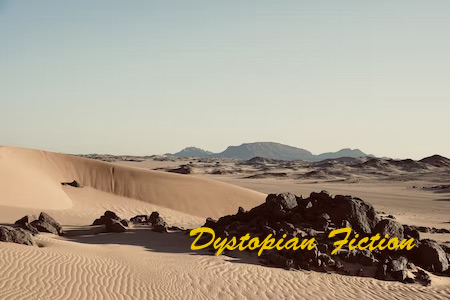![]() Dystopian concept is a piece of literature based on imaginary landscape that reflects extreme deprivation, oppression or terror. This genre has been around for a long time and continues to entertain readers with its distinct settings and equally distinct but gloomy themes. Most of the works are based on a complex composition of disturbing elements such poverty, subjugation, political atrocities, social and economic disparities and technological / scientific advances and failures.
Dystopian concept is a piece of literature based on imaginary landscape that reflects extreme deprivation, oppression or terror. This genre has been around for a long time and continues to entertain readers with its distinct settings and equally distinct but gloomy themes. Most of the works are based on a complex composition of disturbing elements such poverty, subjugation, political atrocities, social and economic disparities and technological / scientific advances and failures.
It is a genre which portrays a world which is imperfect, dark, unfair, a situation arising out of human aspirations, failures and even natural disasters. Authors therefore use these popular constituents to develop their story.
While most of the books belonging to this category reflect a flawed society, political upheavals or apocalyptic tragedies, and its impact on people and places, there are subsets within this class, such as science and speculative fiction which revolve around prophetic devastation or ultimate doom caused by rogue robots, infected computers and cyborgs or ancient predictions such as Mayan prophecy.
There is yet another dystopian theme which although may deem unfit for this genre has grabbed the attention of many renowned authors. That subject is “love during epidemic” – romance which takes place in times of widespread disease or pandemic. One of the popular books synonymous with this category of literature depicts lost and found love amidst the most abysmal conditions ( Cholera ), in times where death and decay is rampant, and in a period where survival is the only goal of life.
It is undoubtedly the most compelling genre but its presence on the literary horizon has been inconsistent. Is the current coronavirus pandemic therefore the right time for authors to experiment with dystopian genus? I believe it is although these writings may not offer “vicarious delight” which is one of the hallmarks of dystopian literature, and the reason is readers have already seen / experienced the situation, and therefore the settings are no longer fictional or speculative in nature.
COVID 19 has already produced unusual stories in India, and some of them have been truly inspiring. One such tale is about Kumari, a 15 year old superlative girl, who cycled 1200 kms, from Gurugram to Dharbanga, to bring back her disabled father during the lock-down. Will writers get inspired by these events and pen down dystopian narrative in the future? Only time will tell. However, the prevailing circumstances across the globe reflect the same trauma and travails depicted in some of the dystopian books.
In a way, writing about coronavirus pandemic will provide a warning, a wake up call to global leaders and world citizens while readers will quickly relate to the environment unlike other works which are based on fictional, surreal setup. Interestingly, the current pandemic has boosted sales of past dystopian novels. One of the top publishing houses reported a whopping 9000% increase in sales. On the flip side, some of the worries of the future have today turned into reality. It has offered a disturbing visual, a live cinema of the world which was unimaginable till a few months back.
On the other hand utopian literature is all about a perfect society, a world with minimum challenges and equally few reasons to shy away from reality.
Buy N.Lalit's Books | Shorts - Amazon | Kindle OR Author Website

